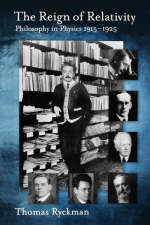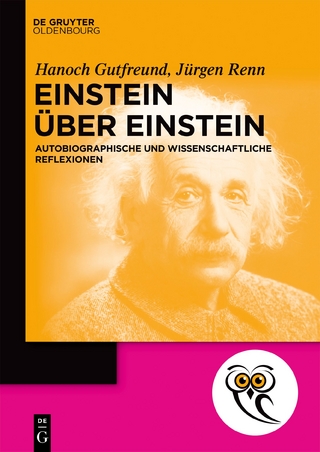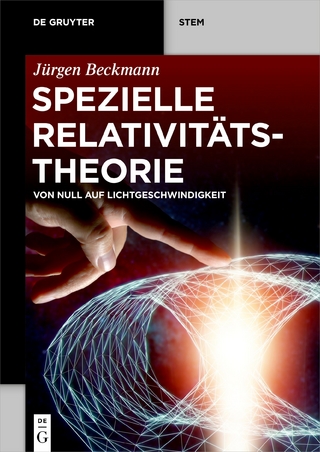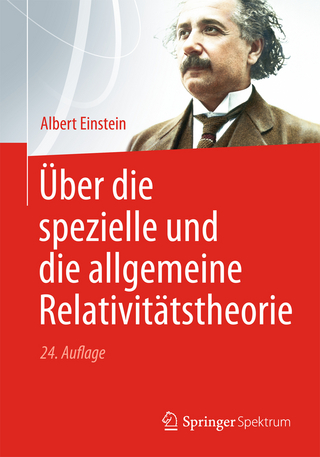
The Reign of Relativity
Philosophy in Physics 1915-1925
Seiten
2007
Oxford University Press Inc (Verlag)
978-0-19-532018-3 (ISBN)
Oxford University Press Inc (Verlag)
978-0-19-532018-3 (ISBN)
Universally recognized as bringing about a transformation of the notions of space, time, and motion in physics, Einstein's theory of gravitation, known as "general relativity," was also a defining event for 20th century philosophy of science. This book looks at the argument that the path actually taken contributed to the impasse over realism.
Universally recognized as bringing about a revolutionary transformation of the notions of space, time, and motion in physics, Einstein's theory of gravitation, known as "general relativity," was also a defining event for 20th century philosophy of science. During the decisive first ten years of the theory's existence, two main tendencies dominated its philosophical reception. This book is an extended argument that the path actually taken, which became logical empiricist philosophy of science, greatly contributed to the current impasse over realism, whereas new possibilities are opened in revisiting and reviving the spirit of the more sophisticated tendency, a cluster of viewpoints broadly termed transcendental idealism, and furthering its articulation. It also emerges that Einstein, while paying lip service to the emerging philosophy of logical empiricism, ended up siding de facto with the latter tendency.
Ryckman's work speaks to several groups, among them philosophers of science and historians of relativity. Equations are displayed as necessary, but Ryckman gives the non-mathematical reader enough background to understand their occurrence in the context of his wider philosophical project.
Universally recognized as bringing about a revolutionary transformation of the notions of space, time, and motion in physics, Einstein's theory of gravitation, known as "general relativity," was also a defining event for 20th century philosophy of science. During the decisive first ten years of the theory's existence, two main tendencies dominated its philosophical reception. This book is an extended argument that the path actually taken, which became logical empiricist philosophy of science, greatly contributed to the current impasse over realism, whereas new possibilities are opened in revisiting and reviving the spirit of the more sophisticated tendency, a cluster of viewpoints broadly termed transcendental idealism, and furthering its articulation. It also emerges that Einstein, while paying lip service to the emerging philosophy of logical empiricism, ended up siding de facto with the latter tendency.
Ryckman's work speaks to several groups, among them philosophers of science and historians of relativity. Equations are displayed as necessary, but Ryckman gives the non-mathematical reader enough background to understand their occurrence in the context of his wider philosophical project.
Thomas Ryckman received his Ph.D. in Philosophy from Columbia University in 1986. He has taught philosophy of science at Wesleyan University, The University of Illinois at Chicago, Northwestern University, the University of California, Berkeley, and Stanford University. He lives in San Francisco.
| Erscheint lt. Verlag | 18.1.2008 |
|---|---|
| Reihe/Serie | Oxford Studies in Philosophy of Science |
| Verlagsort | New York |
| Sprache | englisch |
| Maße | 234 x 156 mm |
| Gewicht | 467 g |
| Themenwelt | Naturwissenschaften ► Physik / Astronomie ► Relativitätstheorie |
| ISBN-10 | 0-19-532018-2 / 0195320182 |
| ISBN-13 | 978-0-19-532018-3 / 9780195320183 |
| Zustand | Neuware |
| Informationen gemäß Produktsicherheitsverordnung (GPSR) | |
| Haben Sie eine Frage zum Produkt? |
Mehr entdecken
aus dem Bereich
aus dem Bereich
Autobiographische und wissenschaftliche Reflexionen
Buch | Softcover (2022)
De Gruyter Oldenbourg (Verlag)
39,95 €
Von Null auf Lichtgeschwindigkeit
Buch | Softcover (2021)
De Gruyter Oldenbourg (Verlag)
59,95 €
Buch | Softcover (2012)
Springer Berlin (Verlag)
64,99 €


